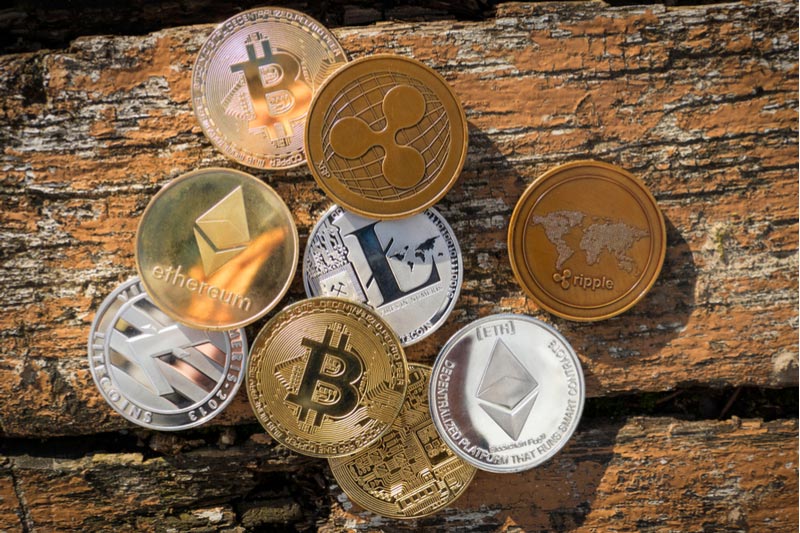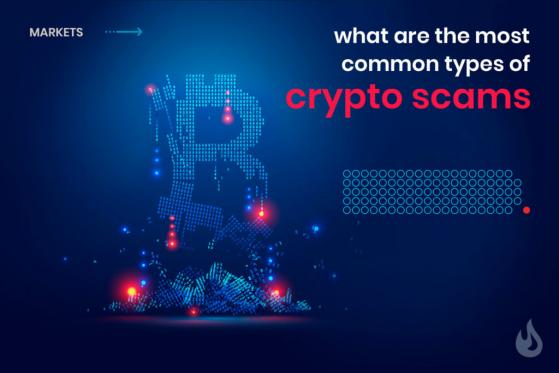An Epidemic of Cryptocurrency Scams
DailyCoin
Published Mar 10, 2021 09:43AM ET
Updated Mar 10, 2021 10:01AM ET

An Epidemic of Cryptocurrency Scams
- A whopping $1.7 billion was lost to cryptocurrency scammers in 2018.
- Critics of cryptocurrencies cite the lack of institutional regulation as the reason for scams in the industry.
- Fraudulent ICO’s and fake exchanges, fake air impersonations are among the popular cryptocurrency scams in the industry today.
- Other scams include malware pump and dump scams, fraudulent wallets, and honey pot scams.
Cryptocurrencies are becoming increasingly popular in today’s world, and more persons and institutions are recognizing the value of digital currencies. Cryptocurrencies’ total market capitalization is at $1.72 trillion at the time of publishing, while the volume traded was $128.58 billion.
Despite the wide acceptance of cryptocurrencies, there is a problem threatening to stifle the growth – cryptocurrency scams.
In 2018, over $1.7 billion was lost to scammers through fraudulent ICOs and Exchanges, fake Airdrops, and impersonations. The figure more than doubled in 2019, where over $4 billion was lost to crypto crimes.
In the first ten months of 2020, $1.8 billion was lost to cryptocurrency thefts, hacks, and frauds netted first. Below are the most prevalent types of cryptocurrency scams and how you can protect yourself from being victim.
Fraudulent ICOs
ICO’s stand for Initial Coin Offerings, and it is a form of crowdfunding in which a firm uses to raise funds for a project.
The lack of red-tapism, regulations, and bureaucracy has made ICO’s really popular in recent years as companies have raised billions within a short time. For example, EOS raised $4.2 billion while Petro raised an impressive $735 million from ICOs.
Fraudulent ICO’s operate by falsifying a whitepaper and generating enough buzz on social media to get people to buy with the hopes of reaping the rewards of being an early investor. An example of this is the ICO of Modern Tech that raised $660 million and disappeared into thin air.
Plexcoin, Contratech, Benebit, and Vernan are amongst the list of fraudulent ICO’s that have cost investors money. To prevent being a victim, you should thoroughly study the white paper, understand the roadmap, and have a decent understanding of the individuals behind your token.
Fake Cryptocurrency Exchanges
The boom in cryptocurrencies has made it necessary for exchanges to exist within the space as an avenue for buying and selling digital assets. The industry’s unregulated nature has created a breeding ground for scammers to make fake crypto exchanges to rob investors of their money.
They create fake exchanges and manipulate trading volumes and charge exorbitant fees before users can access funds. They also use a celebrity endorsement to lure unsuspecting investors and use unsolicited calls and emails to pressure potential victims to invest.
In 2017, South Korean authorities discovered BitKRK as a fake crypto exchange posing as an affiliate of the legitimate trading platform, KRK (Korean exchange). Investors lost millions of dollars to the BitKRK scam.
Other known fake cryptocurrency exchanges include nettocrypto, coingeek, crypto stock, Cryptos.solutions, Finance-nag etc. To avoid being a victim, stick to popular platforms like Binance, Coinbase Pro, Kraken, and Huobi Global.
Ponzi Schemes
Named after Charles Ponzi, Ponzi schemes are fraudulent investment schemes that provide money for earlier investors with money taken from latter investors. These crypto projects promise unreasonable high returns and urge you to refer new people to the site.
Fraudsters behind Ponzi schemes promise consistent returns and are all unregulated and unregistered by the SEC. Plustoken in China raked in at least $2 billion, making it the largest cryptocurrency Ponzi scheme ever.
On the Flipside
- The biggest impact of Blockchain will be security, top experts say.
- The Bank of America (NYSE:BAC) opines that crypto investors are at risk from anti-privacy regulations.
- Oracle (NYSE:ORCL) plans to introduce blockchain to the general public through a crypto-secure data offering
Fake Airdrops
Airdrops are a way to earn cryptocurrency for free without paying any money. It works by asking users to perform certain tasks to generate awareness for a token, and in exchange, they are rewarded with cryptocurrencies.
Scammers use fake airdrops to steal vital information on user accounts. Unsuspecting investors are asked to drop their details before being able to participate in the fake airdrop. Unfortunately, unsuspecting investors submit their details and lose a fortune to scammers in the process.
Continue reading on DailyCoin

Written By: DailyCoin
Trading in financial instruments and/or cryptocurrencies involves high risks including the risk of losing some, or all, of your investment amount, and may not be suitable for all investors. Prices of cryptocurrencies are extremely volatile and may be affected by external factors such as financial, regulatory or political events. Trading on margin increases the financial risks.
Before deciding to trade in financial instrument or cryptocurrencies you should be fully informed of the risks and costs associated with trading the financial markets, carefully consider your investment objectives, level of experience, and risk appetite, and seek professional advice where needed.
Fusion Media would like to remind you that the data contained in this website is not necessarily real-time nor accurate. The data and prices on the website are not necessarily provided by any market or exchange, but may be provided by market makers, and so prices may not be accurate and may differ from the actual price at any given market, meaning prices are indicative and not appropriate for trading purposes. Fusion Media and any provider of the data contained in this website will not accept liability for any loss or damage as a result of your trading, or your reliance on the information contained within this website.
It is prohibited to use, store, reproduce, display, modify, transmit or distribute the data contained in this website without the explicit prior written permission of Fusion Media and/or the data provider. All intellectual property rights are reserved by the providers and/or the exchange providing the data contained in this website.
Fusion Media may be compensated by the advertisers that appear on the website, based on your interaction with the advertisements or advertisers.